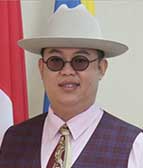Ratio Legis on the Right to Language in the Education System in Timor Leste
Downloads
East Timor obtained its independence through a referendum conducted by the United Nations (UN). The Constitution of the Democratic Republic of Timor Leste (RDTL) was officially enacted on 20 May 2002. The language clause in Article 13 of the Constitution states that the official languages of East Timor are Tetun and Portuguese. Based on this, the government of East Timor put a policy in place, obligating all levels of the educational system to use only Portuguese in their activities. This policy, however, has faced fierce rejection, especially from private educational institutions, because of its inconsistency with the new reality According to data from the UN, less than 5 per cent of the Timorese population speak Portuguese. In this research, two legal issues emerged. The first is about language as a constitutional right of citizens. The second relates to the use of the Portuguese language in the education system in East Timor and its relation to human rights. To analyse the legal problems, this research utilises qualitative and legal methods. It can be successfully proven that, in the implementation of the language clause in East Timor, the government policy does not consider the legal principle of proportional justice and discriminates against Timorese people who use Tetun and other national languages, which should be encouraged by the nation. The conclusion is that the use of the Portuguese language violates constitutional rights and impedes the quality of education.
Downloads
Copyright (c) 2021 Yuridika

This work is licensed under a Creative Commons Attribution-NonCommercial-ShareAlike 4.0 International License.
















